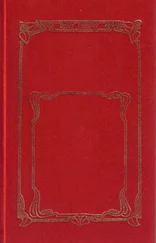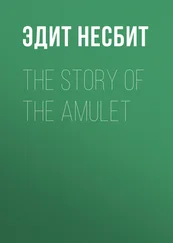Эдит Несбит - The Dragon Tamers
Здесь есть возможность читать онлайн «Эдит Несбит - The Dragon Tamers» весь текст электронной книги совершенно бесплатно (целиком полную версию без сокращений). В некоторых случаях можно слушать аудио, скачать через торрент в формате fb2 и присутствует краткое содержание. Жанр: Сказка, на английском языке. Описание произведения, (предисловие) а так же отзывы посетителей доступны на портале библиотеки ЛибКат.
- Название:The Dragon Tamers
- Автор:
- Жанр:
- Год:неизвестен
- ISBN:нет данных
- Рейтинг книги:4 / 5. Голосов: 1
-
Избранное:Добавить в избранное
- Отзывы:
-
Ваша оценка:
- 80
- 1
- 2
- 3
- 4
- 5
The Dragon Tamers: краткое содержание, описание и аннотация
Предлагаем к чтению аннотацию, описание, краткое содержание или предисловие (зависит от того, что написал сам автор книги «The Dragon Tamers»). Если вы не нашли необходимую информацию о книге — напишите в комментариях, мы постараемся отыскать её.
The Dragon Tamers — читать онлайн бесплатно полную книгу (весь текст) целиком
Ниже представлен текст книги, разбитый по страницам. Система сохранения места последней прочитанной страницы, позволяет с удобством читать онлайн бесплатно книгу «The Dragon Tamers», без необходимости каждый раз заново искать на чём Вы остановились. Поставьте закладку, и сможете в любой момент перейти на страницу, на которой закончили чтение.
Интервал:
Закладка:
E Nesbit (1858–1924)
The Dragon Tamers
There was once an old, old castle-it was so old that its I walls and towers and turrets and gateways and arches had crumbled to ruins, and of all its old splendour there were only two little rooms left; and it was here that John the blacksmith had set up his forge. He was too poor to live in a proper house, and no one asked any rent for the rooms in the ruin, because all the lords of the castle were dead and gone this many a year. So there John blew his bellows, and hammered his iron, and did all the work which came his way. This was not much, because most of the trade went to the mayor of the town, who was also a blacksmith in quite a large way of business, and had his huge forge facing the square of the town, and had twelve apprentices, all hammering like a nest of woodpeckers, and twelve journeymen to order the apprentices about, and a patent forge and a self-acting hammer and electric bellows, and all things handsome about him. So that of course the townspeople, whenever they wanted a horse shod or a shaft mended, went to the mayor. And John the blacksmith struggled on as best he could, with a few odd jobs from travellers and strangers who did not know what a superior forge the mayor's was. The two rooms were warm and weather-tight, but not very large; so the blacksmith got into the way of keeping his old iron, and his odds and ends, and his fagots, and his twopenn'orth of coal, in the great dungeon down under the castle. It was a very fine dungeon indeed, with a handsome vaulted roof and big iron rings, whose staples were built into the wall, very strong and convenient for tying captives up to, and at one end was a broken flight of wide steps leading down no one knew where.. Even the lords of the castle in the good old times had never known where those steps led to, but every now and then they would kick a prisoner down the steps in their light-hearted, hopeful way, and, sure enough, the prisoners never came back. The blacksmith had never dared to go beyond the seventh step, and no more have I-so I know no more than he did what was at the bottom of those stairs.
John the blacksmith had a wife and a little baby. When his wife was not doing the housework she used to nurse the baby and cry, remembering the happy days when she lived with her father, who kept seventeen cows and lived quite in the country, and when John used to come courting her in the summer evenings, as smart as smart, with a posy in his button-hole. And now John's hair was getting grey, and there was hardly ever enough to eat.
As for the baby, it cried a good deal at odd times; but at night, when its mother had settled down to sleep, it would always begin to cry, quite as a matter of course, so that she hardly got any rest at all. This made her very tired. The baby could make up for its bad nights during the day, if it liked, but the poor mother couldn't. So whenever she had nothing to do she used to sit and cry, because she was tired out with work and worry.
One evening the blacksmith was busy with his forge. He was making a goat-shoe for the goat of a very rich lady, who wished to see how the goat liked being shod, and also whether the shoe would come to fivepence or sevenpence before she ordered the whole set. This was the only order John had had that week. And as he worked his wife sat and nursed the baby, who, for a wonder, was not crying.
Presently, over the noise of the bellows, and over the clank of the iron, there came another sound. The blacksmith and his wife looked at each other.
"I heard nothing," said he.
"Neither did I," said she.
But the noise grew louder-and the two were so anxious not to hear it that he hammered away at the goat-shoe harder than he had ever hammered in his life, and she began to sing to the baby-a thing she had not had the heart to do for weeks.
But through the blowing and hammering and singing the noise came louder and louder, and the more they tried not to hear it, the more they had to. It was like the noise of some great creature purring, purring, purring-and the reason they did not want to believe they really heard it was that it came from the great dungeon down below, where the old iron was, and the firewood and the twopenn'orth of coal, and the broken steps that went down into the dark and ended no one knew where.
"It can't be anything in the dungeon," said the blacksmith, wiping his face. "Why, I shall have to go down there after more coals in a minute."
"There isn't anything there, of course. How could there be?" said his wife. And they tried so hard to believe that there could be nothing there that presently they very nearly did believe it.
Then the blacksmith took his shovel in one hand and his riveting hammer in the other, and hung the old stable lantern on his little finger, and went down to get the coals.
"I am not taking the hammer because I think there is anything there," said he, "but it is handy for breaking the large lumps of coal."
"I quite understand," said his wife, who had brought the coal home in her apron that very afternoon, and knew that it was all coal-dust.
So he went down the winding stairs to the dungeon, and stood at the bottom of the steps holding the lantern above his head just to see that the dungeon really was empty as usual. Half of it was empty as usual, except for the old iron and odds and ends, and the firewood and the coals. But the other side was not empty. It was quite full, and what it was full of was Dragon.
"It must have come up those nasty broken steps from goodness knows where," said the blacksmith to himself, trembling all over, as he tried to creep back up the winding stairs.
But the dragon was too quick for him-it put out a great claw and caught him by the leg, and as it moved it rattled like a great bunch of keys, or like the sheet-iron they make thunder out of in pantomimes.
"No you don't," said the dragon, in a spluttering voice, like a damp squib.
"Deary, deary me," said poor John, trembling more than ever in the claw of the dragon; "here's a nice end for a respectable blacksmith!"
The dragon seemed very much struck by this remark. "Do you mind saying that again?" said he, quite politely. So John said again, very distinctly: "Here-Is-A-Nice-End-For-A-Respectable-Blacksmith."
"I didn't know," said the dragon. "Fancy now! You're the very man I wanted."
"So I understood you to say before," said John, his teeth chattering.
"Oh, I don't mean what you mean," said the dragon; "but I should like you to do a job for me. One of my wings has got some of the rivets out of it just above the joint. Could you put that to rights?"
"I might, sir," said John, politely, for you must always be polite to a possible customer, even if he be a dragon.
"A master craftsman-you _are_ a master, of course? — can see in a minute what's wrong," the dragon went on. "Just come round here and feel my plates, will you?"
John timidly went round when the dragon took his claw away; and, sure enough, the dragon's off wing was hanging loose and all anyhow, and several of the plates near the joint certainly wanted riveting.
The dragon seemed to be made almost entirely of iron armour-a sort of tawny, red-rust colour it was; from damp, no doubt-and under it he seemed to be covered with something furry.
All the blacksmith welled up in John's heart, and he felt more at ease.
"You could certainly do with a rivet or two, sir," said he; "in fact, you want a good many."
"Well, get to work, then," said the dragon. "You mend my wing, and then I'll go out and eat up all the town, and if you make a really smart job of it I'll eat you last. There!"
"I don't want to be eaten last, sir," said John.
"Well, then, I'll eat you _first_," said the dragon.
"I don't want that, sir, either," said John.
Читать дальшеИнтервал:
Закладка:
Похожие книги на «The Dragon Tamers»
Представляем Вашему вниманию похожие книги на «The Dragon Tamers» списком для выбора. Мы отобрали схожую по названию и смыслу литературу в надежде предоставить читателям больше вариантов отыскать новые, интересные, ещё непрочитанные произведения.
Обсуждение, отзывы о книге «The Dragon Tamers» и просто собственные мнения читателей. Оставьте ваши комментарии, напишите, что Вы думаете о произведении, его смысле или главных героях. Укажите что конкретно понравилось, а что нет, и почему Вы так считаете.











